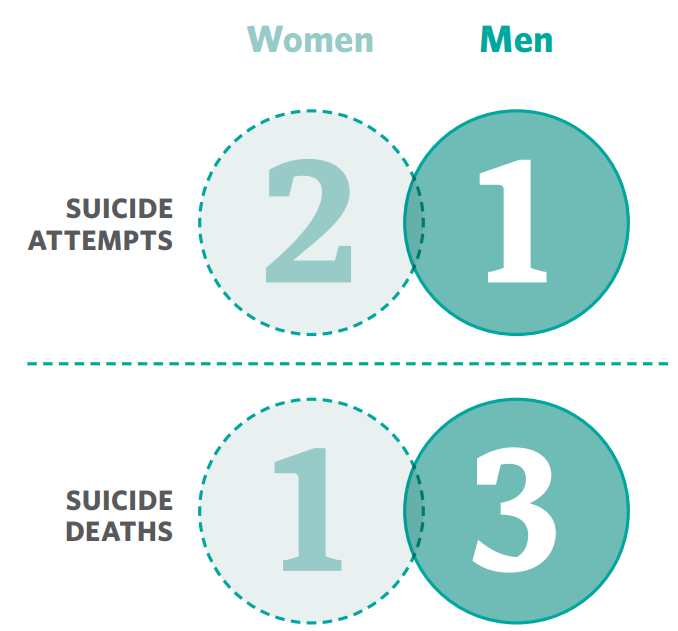If you are in distress, you can call or text 988 at any time. If it is an emergency, call 9-1-1 or go to your local emergency department.
- Fact sheets, Public Resources
Men and Suicide Fact Sheet
This resource was published in 2022. The data may be out of date. Middle-aged men (40 to 60) die by suicide more than anyone, including young people and women (Statistics Canada, 2019). Men are often socialized not to talk about their emotions. As a result, men as a group may mask their stress and deal with emotional pain through harmful behaviours and actions, and sometimes suicide, instead of seeking help (Ogrodniczuk & Oliffe, 2011). What can reduce risk?Warning signs
Any significant change in behaviour or mood is a warning sign that someone may be thinking about suicide. For example:

Factors that can build resiliency in men:
What can men do to stay mentally healthy?
- Fact sheets, Public Resources
Men and Suicide Fact Sheet
Men and Suicide Fact Sheet
- Suicide Prevention
This resource was published in 2022. The data may be out of date. Middle-aged men (40 to 60) die by suicide more than anyone, including young people and women (Statistics Canada, 2019). Men are often socialized not to talk about their emotions. As a result, men as a group may mask their stress and deal with emotional pain through harmful behaviours and actions, and sometimes suicide, instead of seeking help (Ogrodniczuk & Oliffe, 2011). What can reduce risk?
Warning signs
Any significant change in behaviour or mood is a warning sign that someone may be thinking about suicide. For example:

Factors that can build resiliency in men:
What can men do to stay mentally healthy?
SHARE THIS PAGE
RELATED

Review our Assessment Framework for Mental Health Apps — a national framework containing key standards for safe, quality, and effective mental health apps in Canada.

To help expand the use of e-mental health services, we developed four online learning modules based on our Toolkit for E-Mental Health Implementation, in collaboration with the Centre for Addiction and Mental Health (CAMH).

Stepped Care 2.0© (SC2.0) is a transformative model for organizing and delivering evidence-informed mental health and substance use services.

